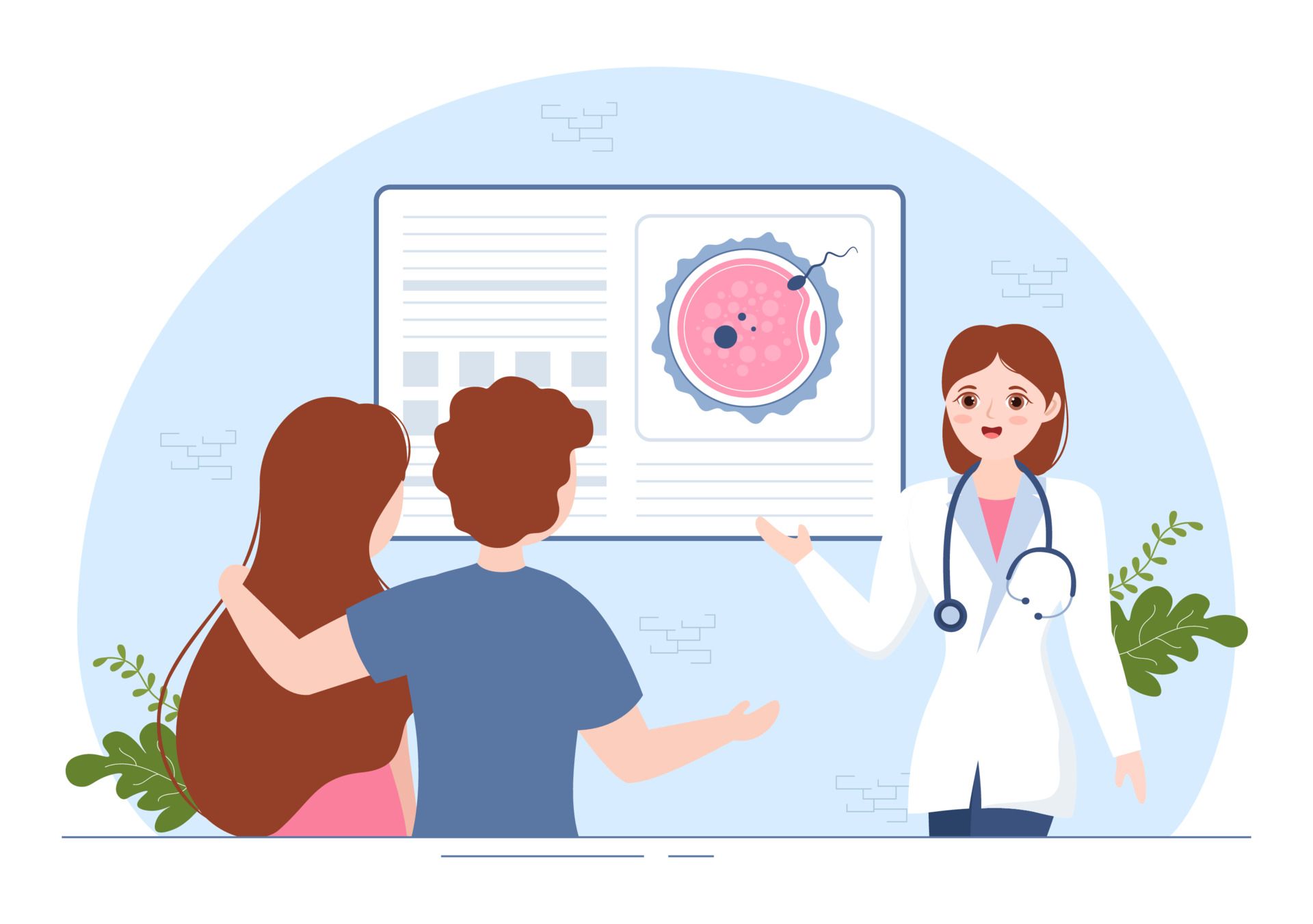Infertility affects countless people and couples around the world. Here's what you need to know. Including its causes, symptoms, and potential treatments, this article will explore the various aspects of infertility. We want to give you valuable insights and information so you can better understand infertility. So, let's go on a journey to discover what influences fertility.

What is infertility?
The inability to get pregnant or conceive after a year of regular unprotected intercourse is called infertility. It affects both men and women, and it's not just a female thing. About one-third of infertility cases are caused by female factors, one-third by male factors, and the rest by a combination of both or unknown factors.
Exploring Female Infertility
Female infertility can be caused by anything from hormonal imbalances to structural issues. Here are some things to keep in mind.
Hormonal imbalances
Unbalanced hormones, like irregular ovulation or problems with reproductive hormones, can affect a woman's fertility. Hypothalamic dysfunction and polycystic ovary syndrome (PCOS) cause hormonal imbalances that can lead to infertility.
Structural abnormalities
The reproductive system can be disrupted by structural abnormalities like blocked fallopian tubes, uterine fibroids, or endometriosis. The chances of getting pregnant are often improved by medical intervention or surgery.
Age-related factors
A woman's fertility naturally declines as she ages because her eggs decrease in number and quality. It starts in your late 20s and gets worse after 35. The important thing to remember is that age-related infertility affects women of all ages.
Understanding Male Infertility
Infertility in men is often caused by problems with sperm production, quality, or delivery. Here are some common causes of male infertility:
Sperm abnormalities
Fertility is affected by abnormal sperm count, movement, or morphology. The chances of fertilization are reduced if you have a low sperm count, poor motility, or abnormally shaped sperm.
Factors such as medical conditions and lifestyle
There are some medical conditions that can affect sperm production, like hormonal imbalances, genetic disorders, and chronic illnesses. Furthermore, smoking, excessive alcohol consumption, drug use, obesity, and exposure to environmental toxins can also contribute to male infertility.
Recognizing the Symptoms
Infertility doesn't always present with obvious symptoms, so it's hard to get to the bottom of it. However, there are some signs and symptoms that can indicate fertility issues. Here's what you need to know:
- Menstrual cycles that are irregular or absent
- Feeling uncomfortable during the intercourse
- Ejaculation or sperm quality problems in men
- Women with hormonal imbalances, like excessive hair growth or acne
- Miscarriages or previous reproductive problems
You or your partner should see a healthcare professional who specializes in reproductive health if you experience any of these symptoms.
Seeking professional help

It's important to get professional help when you're infertile. Fertility specialists, also known as reproductive endocrinologists, can assess your situation, run diagnostic tests, and recommend treatment options. Some of them are:
Fertility Testing: A comprehensive test to identify potential causes of infertility, such as blood tests to assess hormone levels, ultrasound scans to evaluate the reproductive organs, and specialized semen analysis for men.
Ovulation Induction: Women who have irregular ovulation or hormonal imbalances may be prescribed medications to increase their chances of getting pregnant.
IVF: If other treatments haven't worked, ART methods like in vitro fertilization (IVF) or intrauterine insemination (IUI) might be recommended. In either technique, the egg is fertilized outside the body or sperm is directly injected into the uterus.
Surgical interventions: In certain cases of structural abnormalities or blockages, surgery can restore fertility. Fibroids can be removed, fallopian tubes can be repaired, and endometriosis can be treated.
Donor options: If you're having trouble getting pregnant, you might want to consider using donor eggs, sperm, or embryos. It's an alternative way to become a parent.
The most appropriate treatment approach depends on the specific circumstances and underlying causes of infertility. Consult a fertility specialist to find out what's best for you.
Lifestyle Factors and Fertility
Although medical interventions play a big part in addressing infertility, certain lifestyle factors can also affect it. If you want to increase your chances of getting pregnant, try these things:
Maintaining a Healthy Weight: Overweight and underweight people can have fertility issues. Make sure you eat right and exercise regularly to stay healthy.
Avoiding smoking and drinking: Both smoking and drinking excessively have been linked to reduced fertility. Getting rid of or minimizing these habits can make a big difference.
Managing Stress: Chronic stress can mess with your hormones. To promote overall well-being, try stress-reducing activities like exercise, meditation, or counseling.
Dietary balance: Fruits, vegetables, whole grains, lean proteins, and essential vitamins and minerals are important for reproductive health.
Avoiding Environmental Toxins: Pesticides and pollutants can harm your reproductive system. When possible, limit your exposure to these substances.
Conclusion
Infertility affects thousands of couples and individuals around the world. Understanding the causes, symptoms, and treatments will help you navigate the journey with more confidence. It's important to remember that infertility is a medical condition that can be treated with appropriate interventions and support. There are resources available to help you along the way, whether you're seeking fertility treatments or exploring alternative options. As you navigate parenthood, stay informed, seek professional help, and stay optimistic.







